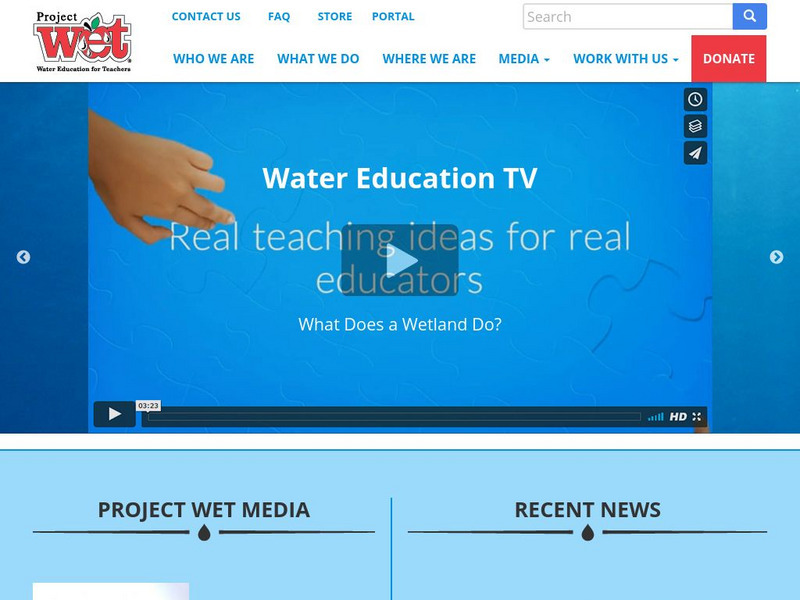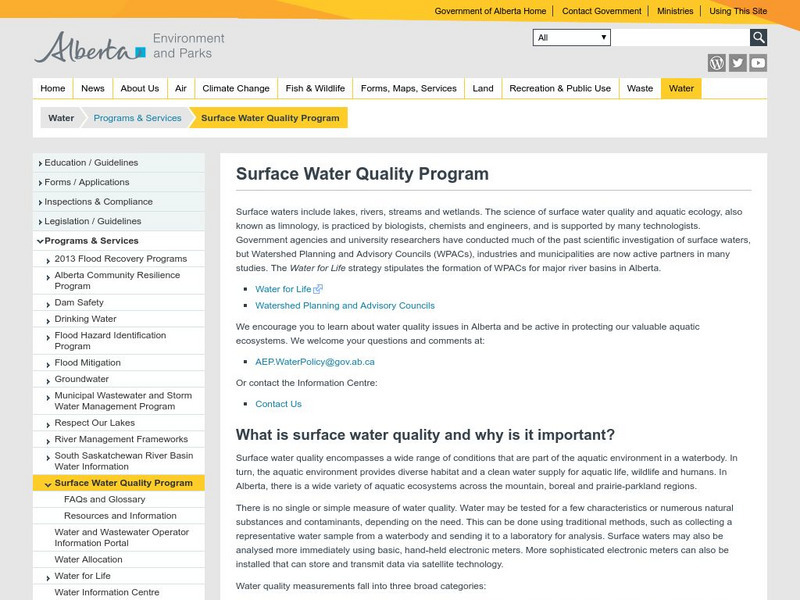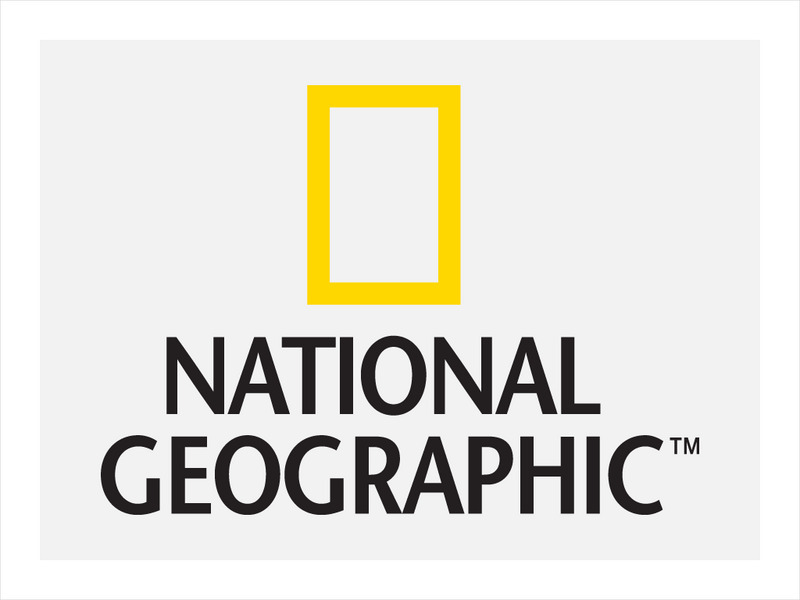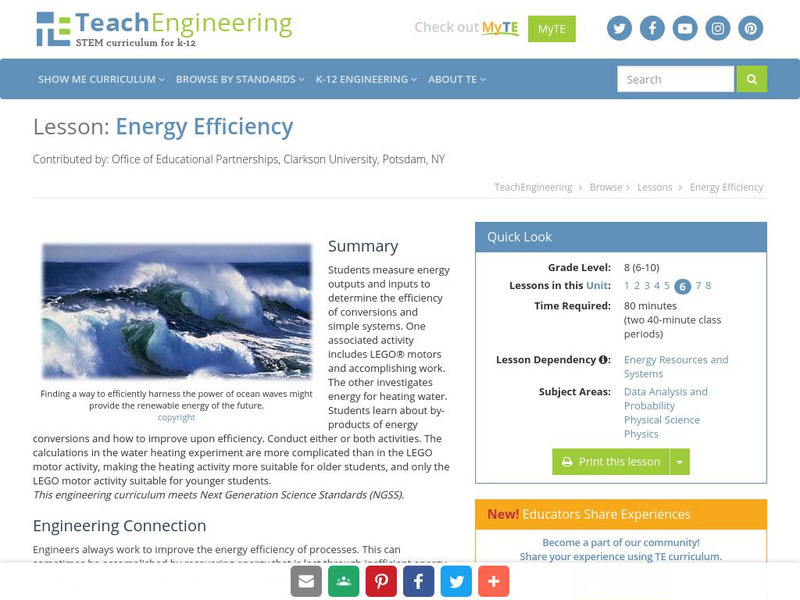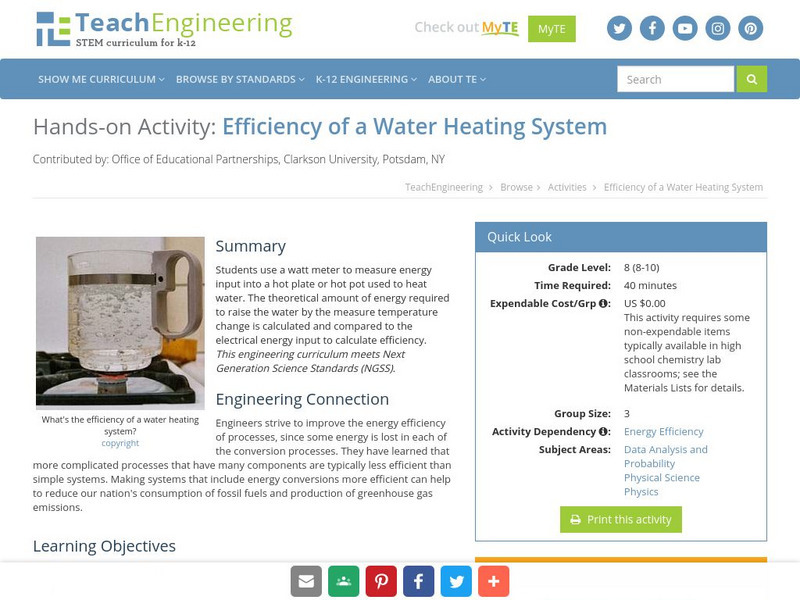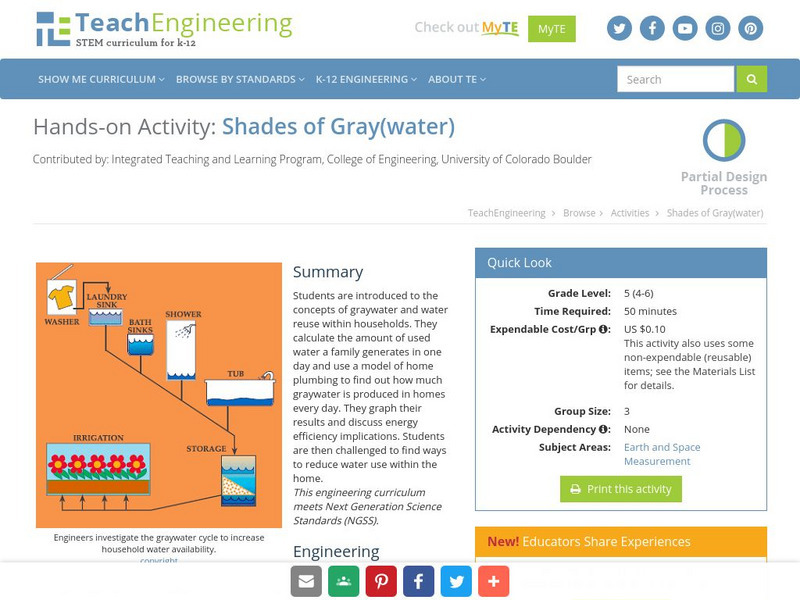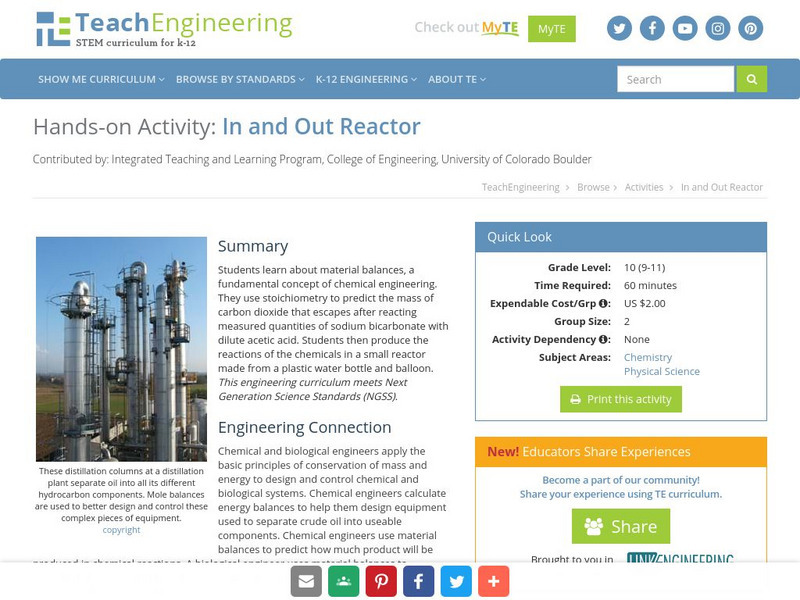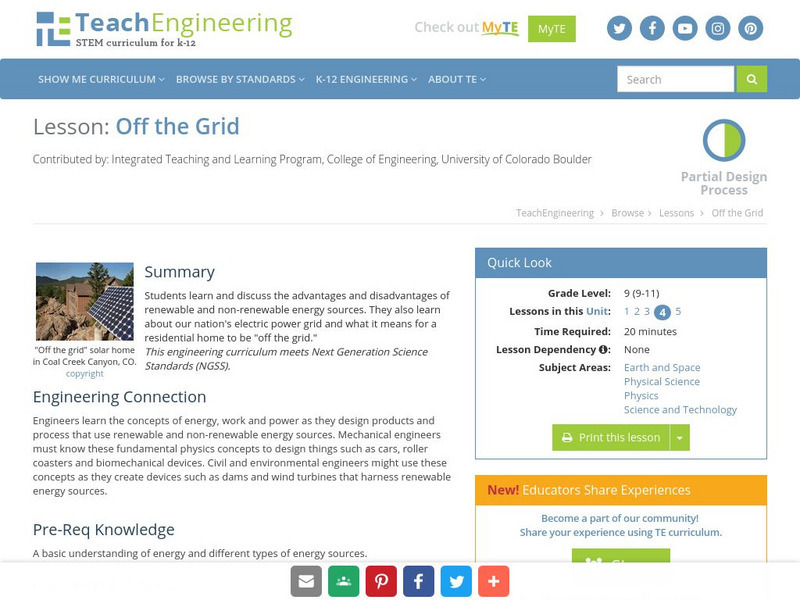Other
Water Use It Wisely: Links and Resources for Water Conservation
A comprehensive reference page with numerous links to water conservation resources. On your quest to begin your own water preservation program, you can reach clean water organizations, read water conservation tips, research landscape...
Other
Grace Communications Foundation: Water Program
Tools and information focusing on water conservation and actions people can take to reduce their "water footprint" in daily life. Proves a "water footprint" calculator, tips for saving water around the house, and a collection of...
TeachEngineering
Teach Engineering: Human Water Cycle
Students learn about the human water cycle, or how humans impact the water cycle by settling down in civilizations. Specifically, they learn how people obtain, use and dispose of water. Students also learn about shortages of treated,...
Other
Project Wet Water Education for Teachers
Non-profit education program dedicated to increasing awareness of water resources through classroom activities and hands-on experience. Lesson plans designed for K-12 students. Site available in English, Spanish, and French.
TeachEngineering
Teach Engineering: How Much Water Do You Use?
Students keep track of their own water usage for one week, gaining an understanding of how much water is used for various everyday activities. They relate their own water usages to the average residents of imaginary Thirsty County, and...
Government of Alberta
Alberta Environment: Focus on Water Quality
This article discusses the importance of water in our lives, the necessity for clean water, what threatens it, and how we can act to help protect the quality of our water.
National Geographic
National Geographic: Programs: Chesapeake Bay Water Quality Project
A project-based collaborative unit of study that teaches students about watershed health using real-time geospatial technology. Students engage in outdoor field experiences while using twenty-first century learning skills.
Other
Grace Communications Foundation: Energy Program
Promoting responsible energy choices and environmentally conscious government policies, NNEC provides information on energy and agriculture, the nexus of energy and water, complexities of power plants, natural gas fracking, energy...
TeachEngineering
Teach Engineering: Solar Water: Heat It Up!
Students explore energy efficiency, focusing on renewable energy, by designing and building flat-plate solar water heaters. They apply their understanding of the three forms of heat transfer (conduction, convection and radiation), as...
TeachEngineering
Teach Engineering: Energy Efficiency
Students measure energy outputs and inputs to determine the efficiency of conversions and simple systems. One associated activitiy includes Lego motors and accomplishing work. The other investigates energy for heating water. Students...
TeachEngineering
Teach Engineering: Efficiency of a Water Heating System
Students use a watt meter to measure energy input into a hot plate or hot pot used to heat water. The theoretical amount of energy required to raise the water by the measure temperature change is calculated and compared to the electrical...
TeachEngineering
Teach Engineering: Shades of Gray(water)
Students are introduced to the concepts of graywater and water reuse within households. They calculate the amount of used water a family generates in one day and use a model of home plumbing to find out how much graywater is produced in...
TeachEngineering
Teach Engineering: In and Out Reactor
Students learn about material balances, a fundamental concept of chemical engineering. They use stoichiometry to predict the mass of carbon dioxide that escapes after reacting measured quantities of sodium bicarbonate with dilute acetic...
TeachEngineering
Teach Engineering: Energy
Through nine lessons, students are introduced to a range of energy types--electrical, light, sound and thermal-as well as the renewable energy sources of wind, hydro (water) and solar power. Subjects range from understanding that the...
TeachEngineering
Teach Engineering: Life Science
This unit covers the processes of photosynthesis, extinction, biomimicry and bioremediation. In the first lesson on photosynthesis, students learn how engineers use the natural process of photosynthesis as an exemplary model of a complex...
TeachEngineering
Teach Engineering: Off the Grid
Learners learn and discuss the advantages and disadvantages of renewable and non-renewable energy sources. They also learn about our nation's electric power grid and what it means for a residential home to be "off the grid."


